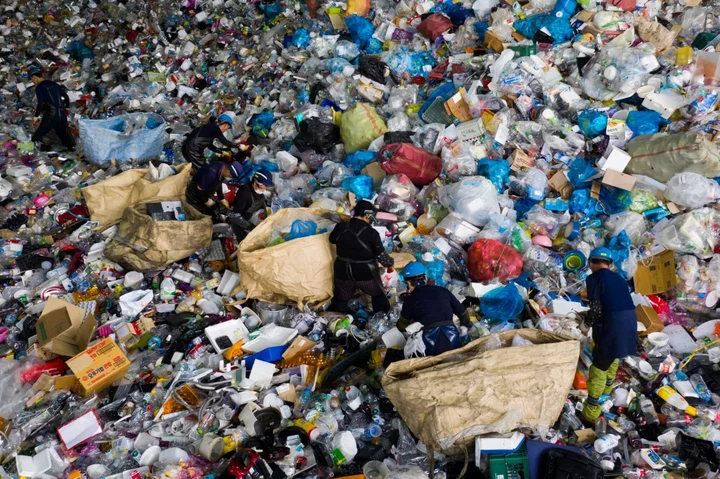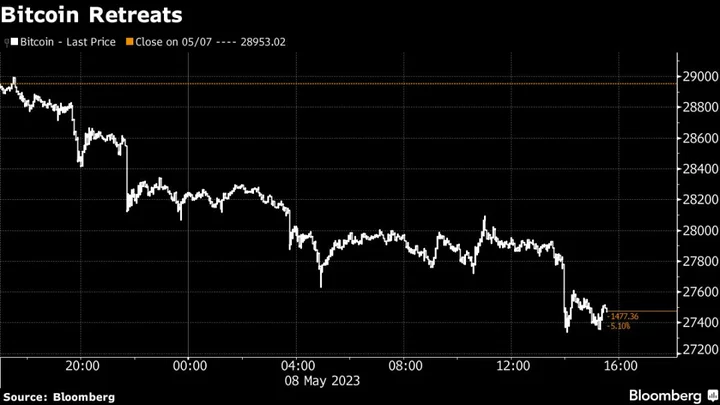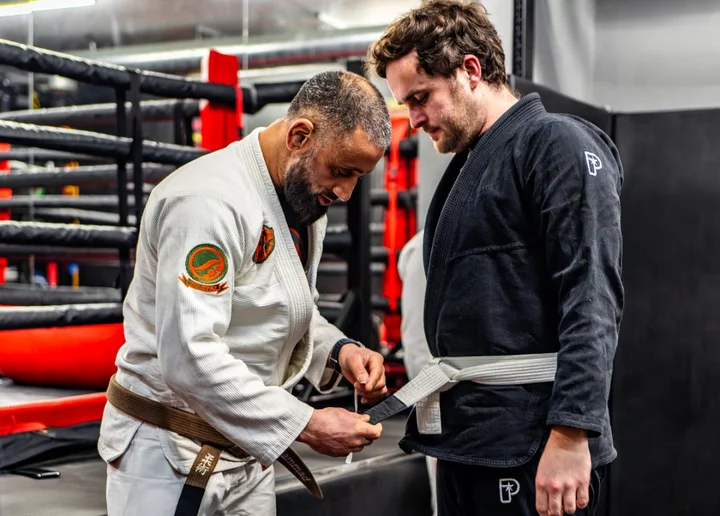In March 2022, the world decided it was time to address the growing scourge of plastic pollution. About 430 million tons of plastic are produced annually, according to the United Nations, two-thirds of that just for short-term use. And at the rate we are going, the amount is set to triple by 2060.
There were meetings and conferences. Then two months ago, the UN’s lead negotiators released a “zero draft” of a global plastics treaty.
The zero draft is, as its name suggests, a starting point. It contains a lot of suggested actions for reducing plastic waste and options for how to implement those steps. One option is that every country “shall” create a list of dangerous chemicals that occur in plastics and follow a plan to phase them out. But under a different option, nations “may” create such a list.
Steering between that “shall” and “may” — the first considered binding, the second voluntary — will be key to the third round of negotiations for the treaty, which start Monday in Nairobi, Kenya.
Anti-plastic advocates fervently hope that nations will come together and deliver binding commitments to stop or slow the global production of plastic. They are looking for regulations that would control plastic products from birth (their chemical components) to grave (design to allow reuse or recycling).
The precedent they aspire to follow is the global agreement to phase out ozone-depleting chemicals in 1987. That treaty, the Montreal Protocol, had hard and fast timelines and is seen as more successful than the 2015 Paris Agreement, which is based on voluntary national targets to reduce greenhouse gases. Most of those targets are so far being missed.
The argument for firm global regulation has grown in strength. A new report by the Organization for Economic Development and Cooperation finds the current infrastructure for plastic capture and recycling is entirely insufficient, and that more than $1 trillion in investment is needed in non-OECD countries alone to prevent plastic from leaking into the environment.
Read More: Inside Big Plastic’s Faltering $1.5 Billion Global Cleanup Effort
Meanwhile, corporations’ voluntary pledges to reduce plastic use are failing. Starting in 2018, the Ellen MacArthur Foundation enlisted 150 companies to report on and reduce their plastics use by 2025. Five years in, 20 companies, including Marks and Spencer Group Plc, Burberry Group Plc and Metro AG, have dropped out, having been unwilling or unable to meet the criteria to take part, such as setting quantitative targets and reporting publicly how they get on.
Instead of doing the hard work of getting rid of virgin plastic, in recent years Nestle SA, PepsiCo Inc. and other big companies have found another way to reassure critics, and it’s far murkier. They’re making claims to being “plastics neutral” — some of which are underpinned by paying third parties to collect trash and pass it on to cement producers for use as fuel in factories.
The mechanism, in other words, is plastic offsets: units akin to carbon offsets that represent a ton of plastic collected and processed or recycled, which are bought by companies seeking to compensate for their waste. It’s now gaining traction as an approach to tackling plastic pollution, and some industry bodies are lobbying for it to feature in the treaty.
But activists are firmly against that. “The negative impacts far outweigh any benefits,” says Marian Frances Ledesma, zero-waste campaigner at Greenpeace Southeast Asia.
Blocking flawed solutions like plastic offsets, regulating plastic along its entire lifecycle, finding billions of dollars to invest in infrastructure — all in a binding way — would be an enormous challenge, even during a time of peace. Now delegates will meet with wars unfolding in Ukraine and Gaza. Erin Simon, vice president for plastic waste and business at the World Wildlife Foundation, says there’s also concern that Saudi Arabia, a major producer of the fossil fuels that are the building blocks of plastic, is willing to use procedural tactics to slow the approval process down.
Nevertheless, advocates remain surprisingly optimistic.
“Although we are not moving fast enough for the planet, we are moving faster on this than any other global issue,” says Simon, pointing out that getting to a zero draft took just 18 months, versus decades for climate accords.
Even countries that can agree on little else agree plastic waste is a nightmare, says Winnie Lau, who directs the preventing ocean plastics project at the Pew Charitable Trusts. “There is a lot of momentum,” she said, “even from countries that don’t like global treaties.” Plastic pollution is just that bad.
--With assistance from Natasha White and Dasha Afanasieva.









